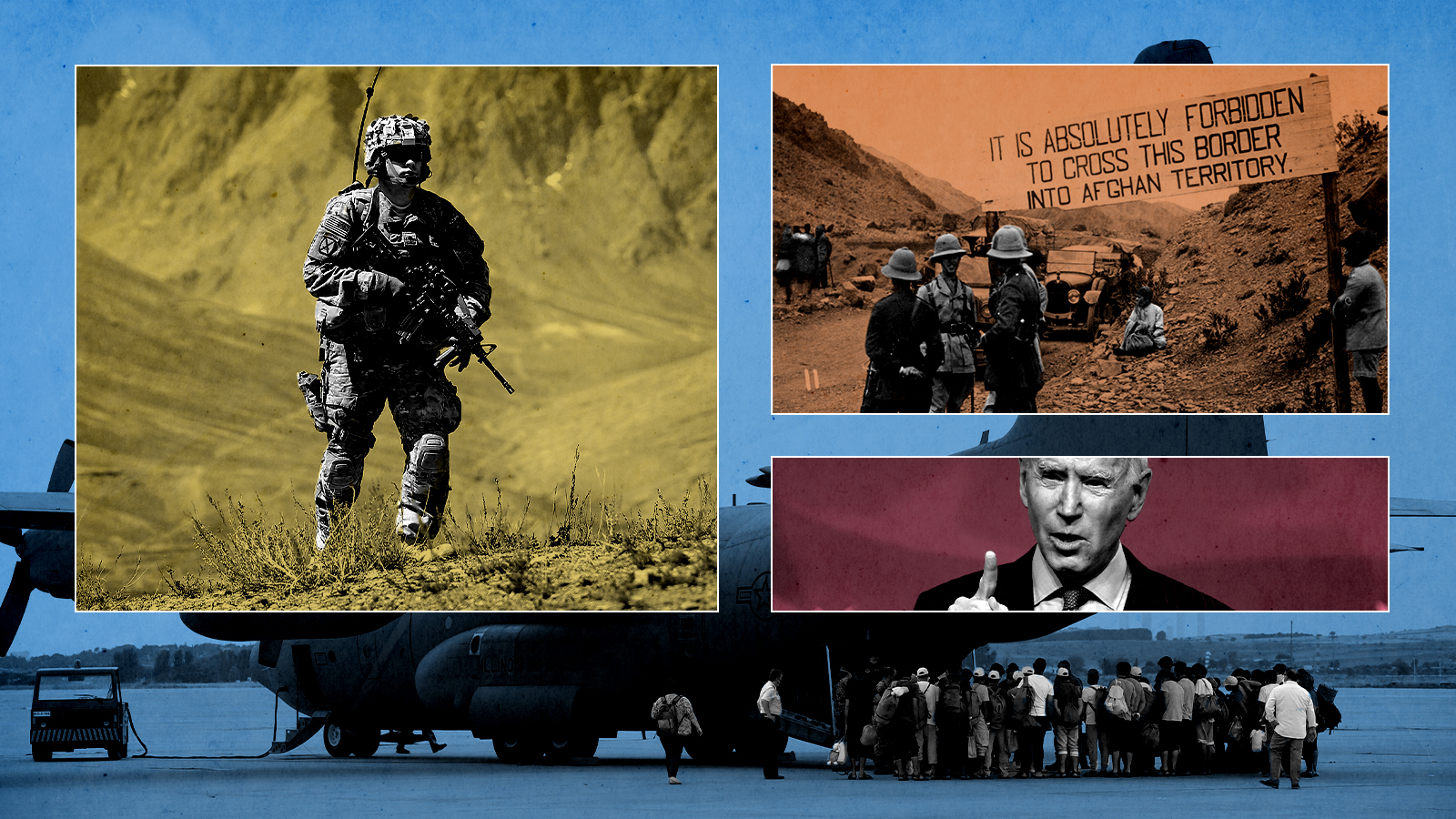4 smart perspectives on Afghanistan


A free daily email with the biggest news stories of the day – and the best features from TheWeek.com
You are now subscribed
Your newsletter sign-up was successful
If you're like me, you've been frustrated and more than a little irritated by media analysis of recent events in Afghanistan. While on-the-ground reporting has been invaluable, much of it has been couched in highly polemical terms, with journalists flinging around words like "fiasco," "reckless," and "calamity," as if the awfulness of the Biden administration's policymaking and implementation should be self-evident to all.
Thankfully, others are doing a better job of furthering our understanding of rapidly unfolding events — and, more importantly, of how we got to the present. Here are four of the best recent takes:
Francis Fukuyama's short essay for American Purpose looks all the way back to the Bonn Conference in late 2001, shortly after the collapse of the Taliban government, for the source of our current problems in the region. That's when we set a goal of creating a centralized, bureaucratic Afghan state instead of trying "to stabilize the country under a coalition of local warlords and tribal militias." The latter would have rubbed a lot of Americans the wrong way, but it likely would have been far more effective than the (ultimately doomed) approach we adopted instead.
The Week
Escape your echo chamber. Get the facts behind the news, plus analysis from multiple perspectives.

Sign up for The Week's Free Newsletters
From our morning news briefing to a weekly Good News Newsletter, get the best of The Week delivered directly to your inbox.
From our morning news briefing to a weekly Good News Newsletter, get the best of The Week delivered directly to your inbox.
David Frum makes a related point in a brief tweet thread about why the Afghan military crumbled as soon as the U.S. withdrew air and logistical support. The answer, once again, was a lack of national cohesion in Afghanistan, which left us as the linchpin holding the country together, which was both "hopeless" and something "nobody else on Earth … would ever attempt."
Ivo Daadler's lengthier tweet thread cogently explains why it's wrong to assume, as so many stories published over the past two weeks have done, that Joe Biden could simply have chosen to disregard the Trump administration's deal with the Taliban over American withdrawal. If Biden had attempted such a reversal, Taliban attacks on U.S. troops would have resumed and accelerated over the low and seemingly sustainable baseline of the past year. Biden's choice, then, "was between withdrawal or a major surge of troops to fight a strengthened Taliban."
Matthew Yglesias's powerful Substack post looks at a long list of American geopolitical decisions over the past 20 years and concludes provocatively that "the national security establishment has never cared about Afghanistan." By which Yglesias really means that we have consistently prioritized other considerations in dealing with major players in the region, including Iran, Russia, China, and Iraq. The national security establishment clearly cares enough about Afghanistan to oppose withdrawal, but it has never cared enough to do what would have been needed to make a decisive difference there.
A free daily email with the biggest news stories of the day – and the best features from TheWeek.com
Damon Linker is a senior correspondent at TheWeek.com. He is also a former contributing editor at The New Republic and the author of The Theocons and The Religious Test.
-
 5 cinematic cartoons about Bezos betting big on 'Melania'
5 cinematic cartoons about Bezos betting big on 'Melania'Cartoons Artists take on a girlboss, a fetching newspaper, and more
-
 The fall of the generals: China’s military purge
The fall of the generals: China’s military purgeIn the Spotlight Xi Jinping’s extraordinary removal of senior general proves that no-one is safe from anti-corruption drive that has investigated millions
-
 Why the Gorton and Denton by-election is a ‘Frankenstein’s monster’
Why the Gorton and Denton by-election is a ‘Frankenstein’s monster’Talking Point Reform and the Greens have the Labour seat in their sights, but the constituency’s complex demographics make messaging tricky
-
 Big-time money squabbles: the conflict over California’s proposed billionaire tax
Big-time money squabbles: the conflict over California’s proposed billionaire taxTalking Points Californians worth more than $1.1 billion would pay a one-time 5% tax
-
 Did Alex Pretti’s killing open a GOP rift on guns?
Did Alex Pretti’s killing open a GOP rift on guns?Talking Points Second Amendment groups push back on the White House narrative
-
 Washington grapples with ICE’s growing footprint — and future
Washington grapples with ICE’s growing footprint — and futureTALKING POINTS The deadly provocations of federal officers in Minnesota have put ICE back in the national spotlight
-
 Trump’s Greenland ambitions push NATO to the edge
Trump’s Greenland ambitions push NATO to the edgeTalking Points The military alliance is facing its worst-ever crisis
-
 Why is Trump threatening defense firms?
Why is Trump threatening defense firms?Talking Points CEO pay and stock buybacks will be restricted
-
 The billionaires’ wealth tax: a catastrophe for California?
The billionaires’ wealth tax: a catastrophe for California?Talking Point Peter Thiel and Larry Page preparing to change state residency
-
 Trump considers giving Ukraine a security guarantee
Trump considers giving Ukraine a security guaranteeTalking Points Zelenskyy says it is a requirement for peace. Will Putin go along?
-
 Bari Weiss’ ‘60 Minutes’ scandal is about more than one report
Bari Weiss’ ‘60 Minutes’ scandal is about more than one reportIN THE SPOTLIGHT By blocking an approved segment on a controversial prison holding US deportees in El Salvador, the editor-in-chief of CBS News has become the main story
